The Major Eurozone Reform To Start after the UK Referendum
Adelina Marini, June 23, 2015
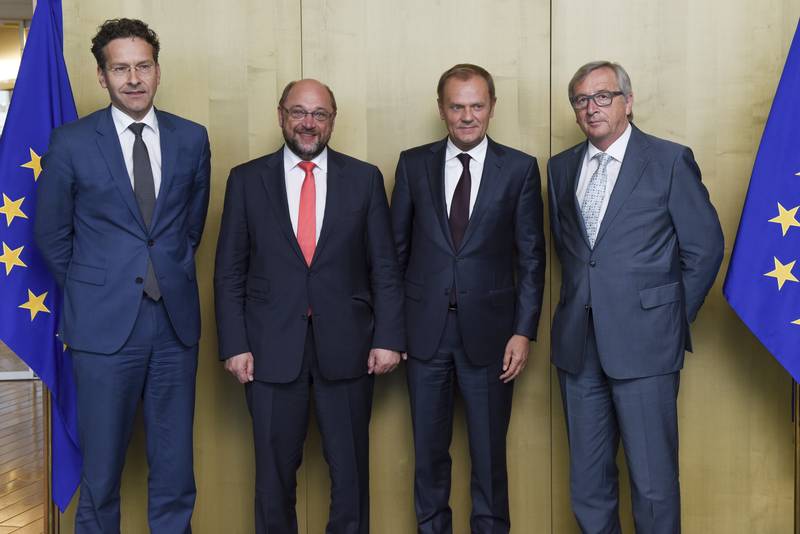 The new report of the five presidents – the bosses of the Eurogroup, ECB, Euro Summit, European Commission, and European Parliament – reheats some leftover dishes but has some new ideas too. The most important changes that would require opening up of the founding treaties are suggested to be postponed until after 2017 when is Great Britain’s deadline for having a referendum about its membership in the EU. As expected the report contains chiefly two phases. The first is whatever could be done without changes in the Treaties, starting July 1st of this year, and the second one provides for yet more discussions to start in 2017 about what changes are to be made in the founding treaties. A deadline is set on the deepening the integration in the common currency zone – the year 2025, and this integration is to be based upon four pillars – an economic, financial, fiscal, and a political Union.
The new report of the five presidents – the bosses of the Eurogroup, ECB, Euro Summit, European Commission, and European Parliament – reheats some leftover dishes but has some new ideas too. The most important changes that would require opening up of the founding treaties are suggested to be postponed until after 2017 when is Great Britain’s deadline for having a referendum about its membership in the EU. As expected the report contains chiefly two phases. The first is whatever could be done without changes in the Treaties, starting July 1st of this year, and the second one provides for yet more discussions to start in 2017 about what changes are to be made in the founding treaties. A deadline is set on the deepening the integration in the common currency zone – the year 2025, and this integration is to be based upon four pillars – an economic, financial, fiscal, and a political Union.
Toward a two-speed Eurozone
The first phase of deepening integration within the Economic and Monetary Union (EMU) provides for the maximum use of existing instruments to achieve structural convergence, boost competitiveness, and enhance democratic accountability. It is noted that a similar speed is to be established within the Eurozone but the second stage practically stipulates that a two-speed Eurozone is to be created. This means that member countries will have to commit to enforce agreed rules with a similar speed which, according to the five co-authors, does not mean that all should become alike or that they should follow the same policies. What matters is the outcome, meaning that all Eurozone member states pursue stable policies, allowing them to rebound quickly from short-term shocks, exploit the single market advantage to attract investment, and sustain high levels of growth and employment.
The second phase stresses heavily on economic convergence between Eurozone member countries. This is the biggest novelty in the second presidents’ report that has been discussed for some time. Convergence will be accomplished by structural reforms, based on a set of commonly agreed standards with a legal character that will focus primarily on labour markets, competitiveness, business environment, public administrations, and certain aspects of tax policy, for example corporate tax base. This would mean sovereignty over policies in these fields will be shared and a common decision-making process will be established at the Eurozone level. Countries that fail to adhere to the common standards will not be able to utilise the new instruments that a deepening will create. Mainly this means a common Eurozone budget. That way the possibility for a two-speed Eurozone is established.
The process of economic convergence will be closely monitored and will be the condition for access to a shock absorption mechanism (another word for a common budget) says the report. This process is part of the attempt to revive the “Euro+” pact. It was the first intergovernmental treaty signed by the member states right after the start of the crisis. A pact that was aimed exactly toward stronger economic coordination and convergence but fell into oblivion. Part of it was included as a separate chapter in the fiscal compact, however several states (Bulgaria for example) refused to accept it. Aiming for economic convergence a system of competitiveness authorities is to be established. Such authorities exist in two member countries already – The Netherlands and Belgium. They must be independent and should monitor whether wage levels are moving in line with productivity growth, so the Greek anomaly is a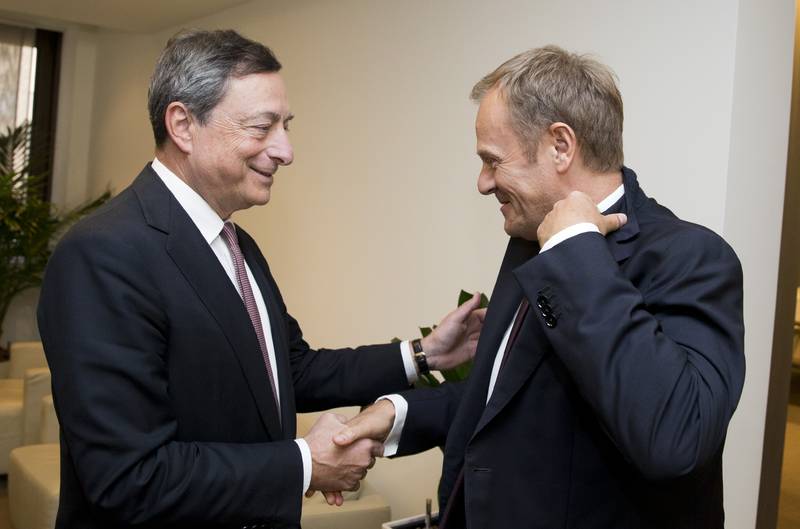 voided – an overtaking wage growth and in the event of a crisis a painful drop in the standard of living is needed.
voided – an overtaking wage growth and in the event of a crisis a painful drop in the standard of living is needed.
These authorities will be based on a common template, but they are expected to be democratically accountable and operationally independent. Social partners are expected to play their role in these authorities. Apart from the creation of this system of competitiveness authorities the report also provides for the strengthening of the Macroeconomic Imbalances Procedure – a part of the European Semester - a reform of the Semester that should concentrate more on the social aspect and stronger coordination of economic policies within the Semester. The report also recommends a deeper integration of national labour markets, by facilitating geographic and professional mobility, including through better recognition of qualifications, easier access to public sector jobs for non-nationals and better coordination of social security systems.
On the ownership of reforms
One of the most-repeated words that actually say nothing over the last few months of preparation of the second presidential report was “ownership” of the reforms process. What that meant was having member countries acknowledge the reforms recommended to them by the European Commission within the European Semester as their own, putting an end to the constant “Brussels said so” excuses. Unfortunately, all these months brought no clarification as to how this is going to happen. The report does not contribute much to clarifying this either, although it provides that country-specific recommendations are to be formulated more clearly and that they should prioritise growth, job creation and use of the single market.
For member states to gain “ownership” of the reforms they should be given freedom on the specific recommendations. National reform programs should be used as basis for discussion of reforms. They do serve this purpose at the moment. The procedure is that countries present their individual reforms programs which the EC evaluates and uses as foundation for formulating specific recommendations. The report does not clearly explain what is to change. It is however provided that member countries are to be held accountable for fulfilling their promises through periodic reports, reviews and explanations why something is not done. Authors of the report find the Eurogroup suitable for assuming the function of coordinator of this process.
A new but not very clear idea is the creation of two stages of the European Semester – a European and a national dimension. This means everything concerning the Eurozone as a whole is to be done first, before the publishing of nation-specific recommendations, so that common challenges are reflected in them. It is also recommended that the annual cycle of the European Semester should go together with a stronger multi-annual approach in line with the economic convergence process.
Toward a financial union
There are several new ideas on the completion of the banking union as a stage in the creation of a financial union. The philosophy that the five presidents are using is that a large portion of the money in the Eurozone is in the form of bank deposits. In this respect you can never have truly single money if confidence in the safety of bank deposits is not the same irrespective of the member state. A common bank oversight is already operational as well as the system of resolution for banks in trouble, however a common deposit insurance scheme is missing. The report reheats an old idea for the creation of a financial backstop to the Single Resolution Fund to fill in the transition period to the creation and full funding of the SRF. This backstop could be a credit line from the Eurozone’s permanent resolution fund – the European Stability Mechanism.
An easier access mechanism for direct bank recapitalisation is recommended, as it would boost depositor confidence. The report urges for a review of banks’ exposition to sovereign debt, so the link between financial stability and public finances is severed. It is however recommended that this be attempted in parallel to similar actions on a global scale.
An integral part of a financial union is creating a capital market, which is yet at a very early stage. The authors of the report recommend the creation of a single European capital markets supervisor, as they feel falling national barriers could create new risks to the financial system. A long-term recommendation is the forming of common fiscal stabilisers within the Eurozone, noting this would require a considerable level of economic convergence, financial integration and coordination of decision making.
On a short-term scale, meaning in the first phase of deepening of integration, the forming of an advisory European Fiscal Board is envisaged to ensure the correct implementation of common fiscal rules, make the debate on fiscal discipline more informed, and guarantee stronger coordination between national fiscal policies. The document does not clarify how this board will resolve the already permanent conflict between “austerians” and Keynesians. The report is not too precise on long-term future, saying work on some details should continue in expert groups.
There is risk for countries outside the Eurozone
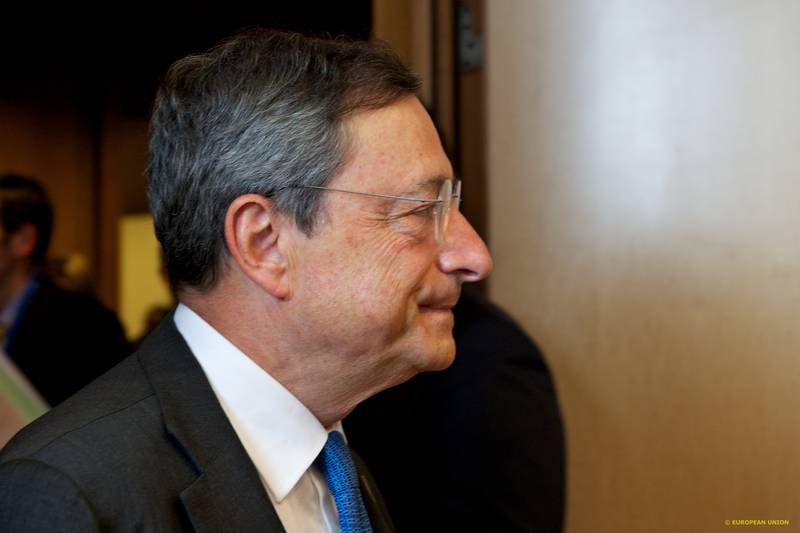 Although it does contain some new ideas the five presidents’ report rather reheats old ones and leads to the single possible conclusion – whatever is to be done it depends on execution within member countries. This continues to be the biggest challenge. The lack of ambition and visionariness in the second report is understandable, given the current confusion with Greece and the upcoming EU membership referendum in the UK. Although lacking enough ambition the report of Mario Draghi, Donald Tusk, Jeroen Dijsselbloem, Jean-Claude Juncker, and Martin Schulz sets the premises for strengthening of the centripetal forces in the Eurozone and loosening with the periphery. Besides, the possibility of creating a two-speed Eurozone further suggests that everyone left outside the currency block will be doomed to oblivion.
Although it does contain some new ideas the five presidents’ report rather reheats old ones and leads to the single possible conclusion – whatever is to be done it depends on execution within member countries. This continues to be the biggest challenge. The lack of ambition and visionariness in the second report is understandable, given the current confusion with Greece and the upcoming EU membership referendum in the UK. Although lacking enough ambition the report of Mario Draghi, Donald Tusk, Jeroen Dijsselbloem, Jean-Claude Juncker, and Martin Schulz sets the premises for strengthening of the centripetal forces in the Eurozone and loosening with the periphery. Besides, the possibility of creating a two-speed Eurozone further suggests that everyone left outside the currency block will be doomed to oblivion.
The fact that the report concentrates on the Eurozone even in the context of the European Semester, which is common to all member countries in the EU is quite suggestive. One should not forget the emphatic position of one of the authors – ECB boss Mario Draghi – communicated at his hearing in the economic committee of the European Parliament last week. Answering the question of Spanish MEP Jonás Fernández (Socialists and Democrats) about the accession of the five member countries of the EU that, according to their treaties, should join after fulfilling the conditions – Bulgaria, Romania, Czech Republic, Sweden, Poland – Mario Draghi stated that 3-4 years ago some countries were joining, while others lacked the will. And this should be respected, he said.
"We thought initially that the broader monetary union would be our ambition (still is our ambition) but today if we are to decide between spending our energies toward enlarging the union or spending our energies toward making it stronger in a way that we have to expand in the fiscal area, the economic area, the political area, I would surely choose the second“, said Mario Draghi. This is no harmless remark from the leader of the central bank of the EU. It shows that from now on even countries who lacked the will several years ago, Bulgaria among them, are being left behind. It is also a hint that their accession might be possible under different criteria. The conclusion for Bulgaria is that it has missed an important step in its European integration. A step that was far-sightedly taken by two of the Baltic states – Lithuania and Latvia who joined even before the crisis in the Eurozone was over with the strong conviction that this would bring their eurointegration to a successful end.
The report is so far accepted well by the liberals in the European Parliament who said it is a step in the right direction. According to ALDE coordinator and member of the EP economic committee Sylvie Goulard (France), a shortcoming of the report is the proposed time frames. “Because of the elections in France and Germany in 2017 no great progress will be made over the next 2 years. Completion of the final stage is foreseen by 2025”, voiced her disappointment Goulard. The largest group in the European Parliament – the EPP – shared on Twitter their position of June 16 when the report of the EP on the subject was put to a vote. The position of the group is that you should not interfere with something that is working well. According to them, the current framework for economic rule is working well, only more emphasis could be put on democracy and debate.
The European Parliament report was voted in after an agreement was reached between the EPP and the Socialists and Democrats, provoking the liberals’ discontent. Socialists and Democrats would not comment today the report that will be the highlight in the agenda of the EU summit this Thursday and Friday. Discontent with the report have expressed the group of Greens and the European Free Alliance. The group's economic policy spokesman, Sven Giegold (Germany), said Mario Draghi's calls for more common policies had fallen on deaf years. "The heads of the EU institutions know what is called for, but they are unwilling to take the long overdue step toward integration, fearing refusal by EU leaders".
Translated by Stanimir Stoev
 Angela Merkel, Emmanuel Macron | © Council of the EU
Angela Merkel, Emmanuel Macron | © Council of the EU Benoit Coeure | © Council of the EU
Benoit Coeure | © Council of the EU Pierre Moscovici | © Council of the EU
Pierre Moscovici | © Council of the EU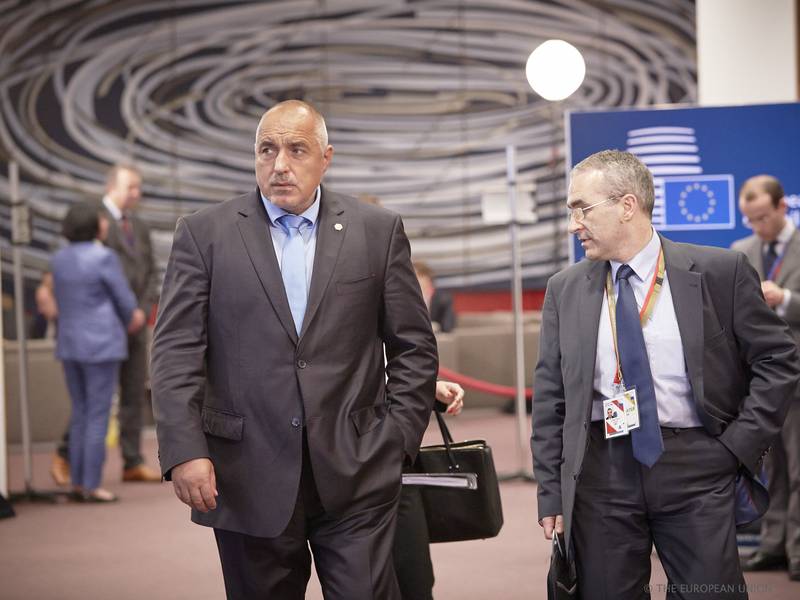 Boyko Borisov | © Council of the EU
Boyko Borisov | © Council of the EU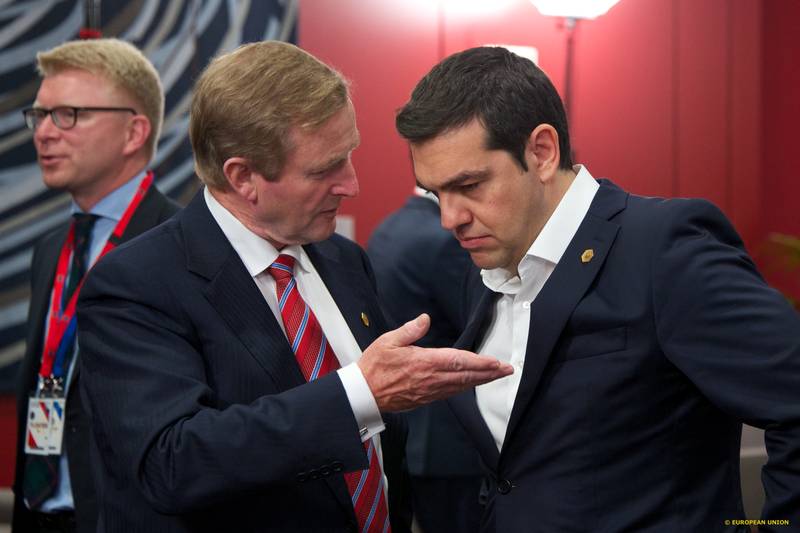 Enda Jenny, Alexis Tsipras | © Council of the EU
Enda Jenny, Alexis Tsipras | © Council of the EU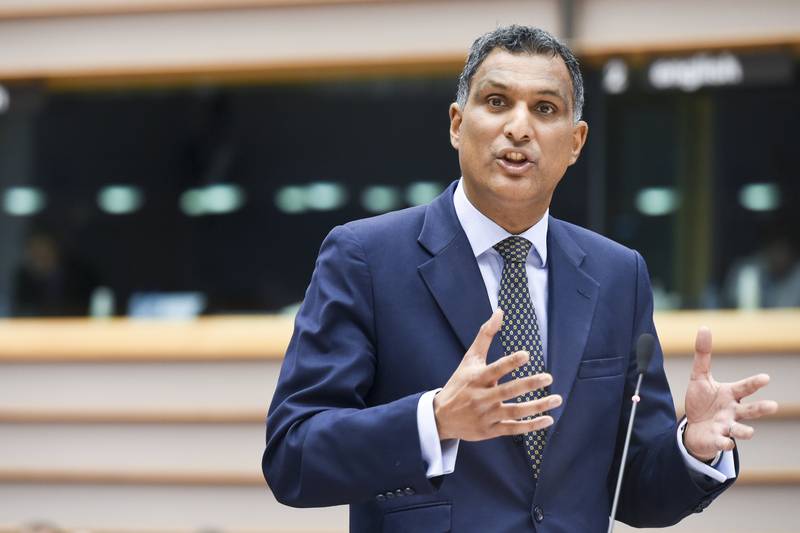 Syed Kamall | © European Parliament
Syed Kamall | © European Parliament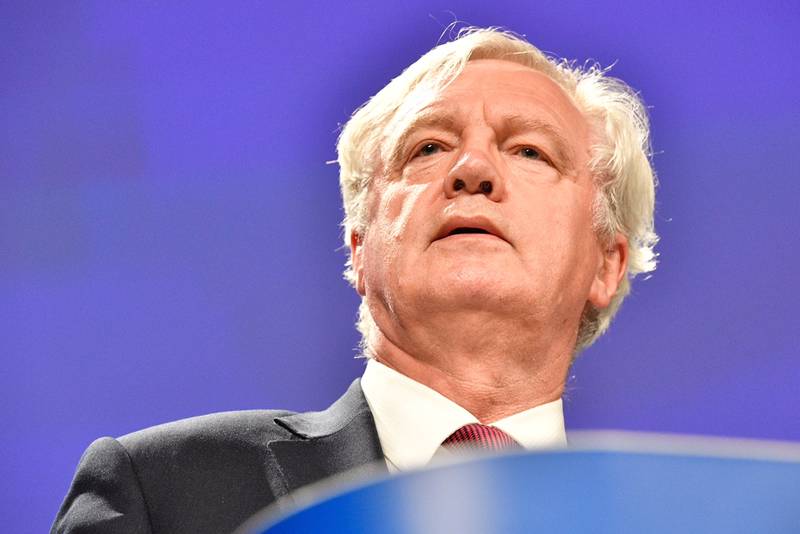 David Davis | © European Commission
David Davis | © European Commission Angela Merkel | © Council of the EU
Angela Merkel | © Council of the EU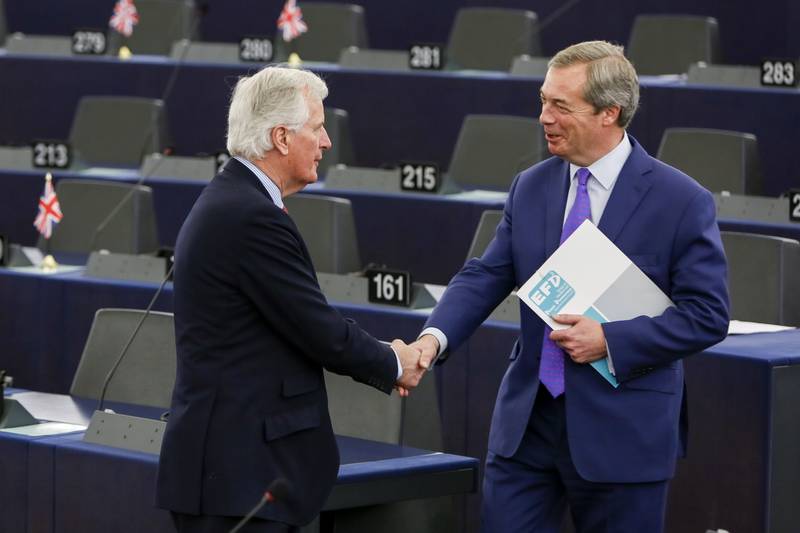 Michel Barnier, Nigel Farage | © European Parliament
Michel Barnier, Nigel Farage | © European Parliament